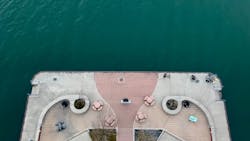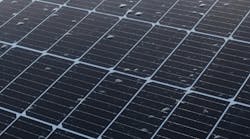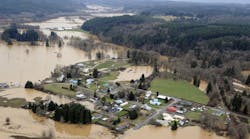Cleveland Water Alliance shares volunteer science framework
The Cleveland Water Alliance (CWA)’s inaugural Lake Erie Citizen Science Summit has culminated with a framework that outlines standards for effective volunteer science.
CWA stated that its Lake Erie Citizen Science Summit — gathering regional lakefront and watershed volunteer groups, researchers, and stakeholders — culminated with the output of the Lake Erie Baseline Assessment Framework (LEBAF). LEBAF is a cohesive set of standards for operating procedures, data gathering, and necessary technology which elevates the credibility and capacity of volunteer science.
Lake Erie and its watersheds are more significantly impacted by human activity than any other Great Lake. These impacts are fueled by a mix of longstanding challenges like agriculture-driven harmful algal blooms and industry-driven heavy metal pollution, as well as emerging contaminants such as microplastics, pharmaceuticals, and PFAS. At the same time, slim budgets and staffing challenge State and Provincial monitoring programs, limiting the scope and granularity of water quality data collected across the Lake Erie Basin.
Volunteer science groups are essential contributors to the regional data and information needed to address water quality challenges. However, these groups often develop in response to hyper-local information or management needs — resulting in fragmented data sets that are challenging to utilize across watersheds, state, regional, or other political boundaries. It is often difficult for decision makers and communities to fully leverage our existing volunteer science capacity to address the most pressing water research, governance, and management needs.
"These standards will elevate the power of citizen science data and set out a shared framework for regional collaboration between local groups,” said Max Herzog, Program Manager at CWA. “In 2019, we launched the Smart Citizen Science Initiative to address this critical gap in regional monitoring capacity. The initiative is now re-launching as the Lake Erie Volunteer Science Network (LEVSN) to pilot the first output of the LEBAF process and engage new partners in our community of practice. Together, we’re working to unite and empower our communities to collect, share, and engage with water quality data for the collective benefit of our Great Lake and all who call it home.”
In addition to actioning the framework and setting the basis for voluntary adoption across the region throughout 2022 and 2023, CWA is also developing Water Accelerator Testbeds to amplify and attract regional innovation by offering “plug-and-play” environments and engagement-friendly access to industry-specific customer profiles, as well as launching new Open Innovation challenges to identify critical industry needs and advance the entry of technology solutions to the market.
Co-organized with Ohio Sea Grant, sponsored by the Cooperative Institute for Great Lakes Research (CIGLR) and the Northeast Ohio Regional Sewer District, and supported by a $150,000 investment in monitoring technologies by CWA, this summit was closely aligned with the 2022 State of Lake Erie Conference, which was hosted by the International Association for Great Lakes Research (IAGLR).


